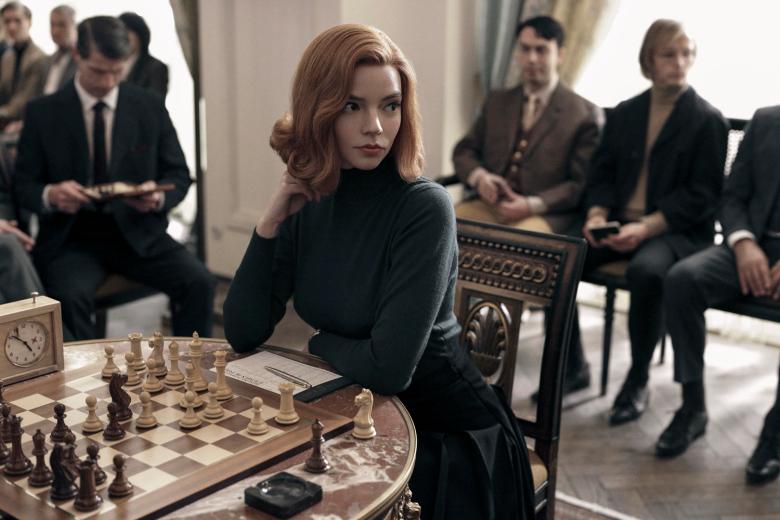For better or for worse, Hollywood in many ways is a reflection of how we are acting as a society. While that reflection may not always be the most accurate or most positive, it’s fascinating to see how people react to what they see in the mirror. In media depictions like film and television, there seems to be two rising portrayals of people we previously haven’t seen very often, and when we had seen them deeply criticized; the B$tch and the Soft Boy/Man.
To a certain extent we recognize the B$tch in Hollywood, with certain standout roles like Miranda Priestly from The Devil Wears Prada, Regina George from Mean Girls, Kat from 10 Things I Hate About You and so on. The B$tch is not always the villain in the way characters like Miranda and Regina are introduced to us as. What makes this character “unlikeable” or “b$tchy” is often her refusal to follow society’s rules for women (like being meek or being in a position of power), having a strong attitude and not giving any sh$ts about what other people think. This type of character has been around for a long time, what’s changed is our attitude towards her. Right now we love a good Bad B$tch.
Take for example Annalise Keating from How To Get Away With Murder, in many ways a highly unlikeable but an extremely magnetic individual. Annalise is calculating, stubborn, highly intelligent and confident; qualities that have traditionally been viewed as negative examples of female behavior. Or a more recent example, Beth Harmon in The Queen’s Gambit, a not necessarily likable but fascinating character. Throughout the series, since Harmon left the walls of her orphanage she has achieved and maintained control over her life, from the men she sleeps with to the high-end clothing she wears. She does what she wants and largely looks down on others and we love her for it. For such a long period of time, women have been told to “act nice”, “look pretty” and to listen to the rules and have gotten little personal or career satisfaction from it, in reality or in media portrayals. With characters like Harmon’s or Keating’s, we see women act the way they want with men holding zero power over them. While she’s definitely not always a likable character, the B$tch is a highly relatable one for many women today.
On the other side of the pond, we have definitely seen a rise in what I like to call the “soft man”, not to be confused with “soft boy” or “soft boi”. “Soft boy”/”soft boi” is a term originating from TikTok. According to Urban Dictionary is “a less masculine boy who is described as “cute” based on their soft or gentle characteristics.” A “soft boy” on Tik Tok can be seen wearing pastels, having curly and or fluffy hairstyles and a general aura of sweetness. The closest female equivalent of a “soft boy” in terms of Hollywood archetypes might be the Manic Pixie Dream Girl. Sweet, sensitive and highly unrealistic examples of an “ideal” lover. Examples of “soft boys” in Hollywood would include actors like Noah Centineo or Timothée Chalamet. These actors speak in softer registers, often referencing poetry or other “sensitive” material and the antithesis of the macho man stereotype. There is a boyish whimsy to the types of roles these actors play that appeals to women who aren’t necessarily turned on by chiseled muscles or a bossy attitude.
While it’s not officially a term the internet has coined (yet), the “soft man” is appealing for many of the same reasons the “soft boy” is desired. The “soft man” is obviously older and typically has a more muscular build in comparison with his younger counterpart. The “soft man” is a highly-sensitive male character who is deeply emotionally intelligent, soft-spoken while still exhibiting some typically masculine attributes, like being good at athletic activities like boxing or chopping down firewood. In my opinion, examples of the “soft man” can include protaginis Simon Basset from Bridgerton or Steve Eddison in The Wedding Planner. While these men are still traditionally “masculine” in their appearance, they’re more soft-spoken, sensitive and pay more attention to the needs and desires of their female counterparts.

Bridgerton’s Rege-Jean Page as Simon Basset
I think the beloved B$tch character and the “Soft Boy/Man” are both increasingly showing up in the media for the same reasons. Almost as backlash to the excessive examples of toxic masculinity that we had in real life and media (and still largely have), we’re seeing characters that largely buck gender norms and present some of our strongest inner desires. We will definitely continue to see characters like this popping up in entertainment and hopefully see further progress into breaking down tired Hollywood tropes.
By Christine Philip
Image via Netflix


